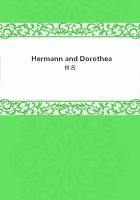those affections of Soul which are related to body.On the contrary, Soul, conceived apart from affection and Reason-Principle, we have restored to its origin, leaving in the lower realm no substance which is in any sense Intellectual.
17.This procedure, if approved, will entail a distinction between psychic and bodily qualities, the latter belonging specifically to body.
If we decide to refer all souls to the higher, we are still at liberty to perform for Sensible qualities a division founded upon the senses themselves- the eyes, the ears, touch, taste, smell; and if we are to look for further differences, colours may be subdivided according to varieties of vision, sounds according to varieties of hearing, and so with the other senses: sounds may also be classified qualitatively as sweet, harsh, soft.
Here a difficulty may be raised: we divide the varieties of Substance and their functions and activities, fair or foul or indeed of any kind whatsoever, on the basis of Quality, Quantity rarely, if ever, entering into the differences which produce species; Quantity, again, we divide in accordance with qualities of its own: how then are we to divide Quality itself into species? what differences are we to employ, and from what genus shall we take them? To take them from Quality itself would be no less absurd than setting up substances as differences of substances.
How, then, are we to distinguish black from white? how differentiate colours in general from tastes and tangible qualities?
By the variety of sense-organs? Then there will be no difference in the objects themselves.
But, waiving this objection, how deal with qualities perceived by the same sense-organ? We may be told that some colours integrate, others disintegrate the vision, that some tastes integrate, others disintegrate the tongue: we reply that, first, it is the actual experiences [of colour and taste, and not the sense-organs] that we are discussing and it is to these that the notions of integration and disintegration must be applied; secondly, a means of differentiating these experiences has not been offered.
It may be suggested that we divide them by their powers, and this suggestion is so far reasonable that we may well agree to divide the non-sensuous qualities, the sciences for example, on this basis; but we see no reason for resorting to their effects for the division of qualities sensuous.Even if we divide the sciences by their powers, founding our division of their processes upon the faculties of the mind, we can only grasp their differences in a rational manner if we look not only to their subject-matter but also to their Reason-Principles.
But, granted that we may divide the arts by their Reason-Principles and theorems, this method will hardly apply to embodied qualities.Even in the arts themselves an explanation would be required for the differences between the Reason-Principles themselves.Besides, we have no difficulty in seeing that white differs from black; to account for this difference is the purpose of our enquiry.
18.These problems at any rate all serve to show that, while in general it is necessary to look for differences by which to separate things from each other, to hunt for differences of the differences themselves is both futile and irrational.We cannot have substances of substances, quantities of quantities, qualities of qualities, differences of differences; differences must, where possible, be found outside the genus, in creative powers and the like: but where no such criteria are present, as in distinguishing dark-green from pale-green, both being regarded as derived from white and black, what expedient may be suggested?
Sense-perception and intelligence may be trusted to indicate diversity but not to explain it: explanation is outside the province of sense-perception, whose function is merely to produce a variety of information; while, as for intelligence, it works exclusively with intuitions and never resorts to explanations to justify them;there is in the movements of intelligence a diversity which separates one object from another, making further differentiation unnecessary.
Do all qualities constitute differentiae, or not? Granted that whiteness and colours in general and the qualities dependent upon touch and taste can, even while they remain species [of Quality], become differentiae of other things, how can grammar and music serve as differentiae? Perhaps in the sense that minds may be distinguished as grammatical and musical, especially if the qualities are innate, in which case they do become specific differentiae.
It remains to decide whether there can be any differentia derived from the genus to which the differentiated thing belongs, or whether it must of necessity belong to another genus? The former alternative would produce differentiae of things derived from the same genus as the differentiae themselves- for example, qualities of qualities.
Virtue and vice are two states differing in quality: the states are qualities, and their differentiae qualities- unless indeed it be maintained that the state undifferentiated is not a quality, that the differentia creates the quality.
But consider the sweet as beneficial, the bitter as injurious:
then bitter and sweet are distinguished, not by Quality, but by Relation.We might also be disposed to identify the sweet with the thick, and the Pungent with the thin: "thick" however hardly reveals the essence but merely the cause of sweetness- an argument which applies equally to pungency.
We must therefore reflect whether it may be taken as an invariable rule that Quality is never a differentia of Quality, any more than Substance is a differentia of Substance, or Quantity of Quantity.
Surely, it may be interposed, five differs from three by two.















